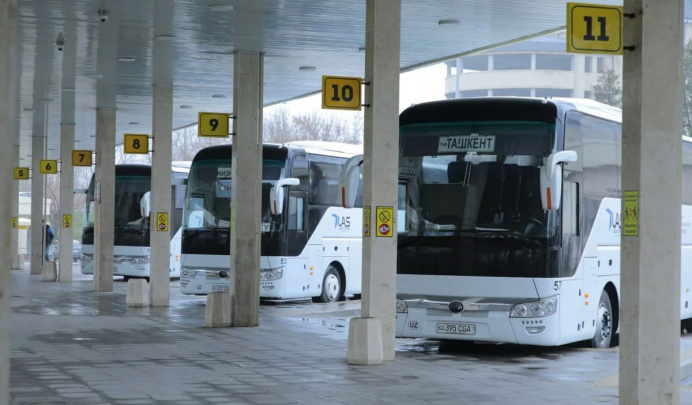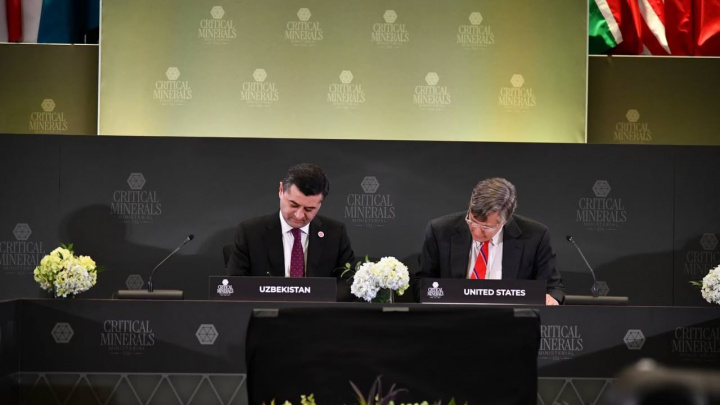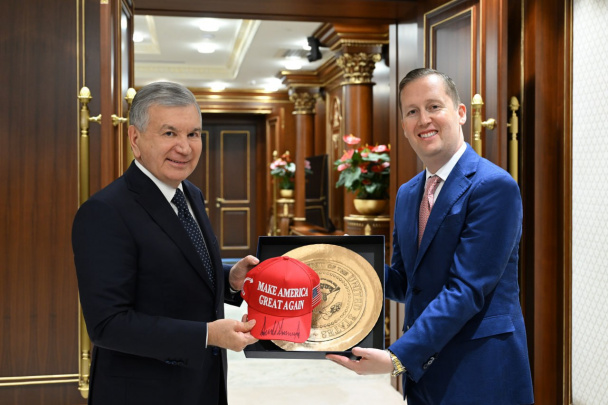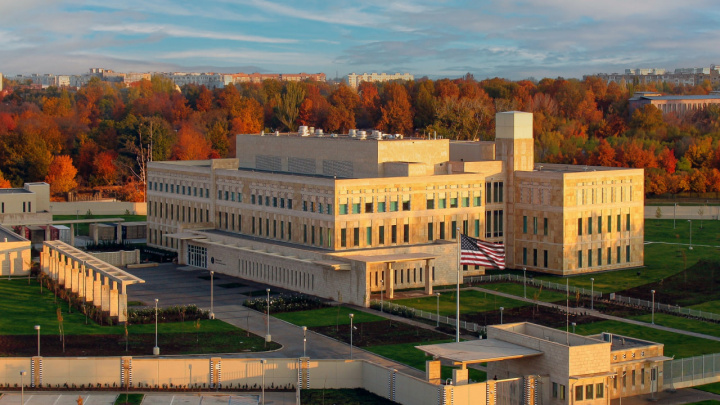US-Central Asia co-op, Russian aggression, Afghan issue, openness policy – exclusive interview with Secretary Blinken (full)
On February 28 and March 1, the US Secretary of State Antony Blinken visited Uzbekistan. During the visit, he was received by President Shavkat Mirziyoyev and held talks with the Foreign Ministry of the country Bakhtiyor Saidov. The parties discussed strengthening bilateral cooperation.
Also, Secretary Blinken had an exclusive interview with Kun.uz, in which he talked about consolidating ties with the countries of Central Asia, standing up against the war in Ukraine and Russian aggression, striving for economic integrity in the region, commitments of the Taliban, freedom of speech in Uzbekistan and many other more.
Mr. Secretary, thank you very much for being here. I want to start by asking about the current state of relations between the Central Asian countries and the United States. Has anything changed in the US foreign policy toward the countries of the region in light of recent developments in the international arena, especially, after the war in Ukraine?
Well, I think, we’ve had longstanding relationships with each country going back to their independence, and the foundation of that relationship has been our strong support for the sovereignty and territorial integrity of each of the countries of Central Asia. But I think what you’ve seen in recent years is a deepening and strengthening of these relationships across a number of areas, trying to create greater economic opportunity, working together to meet shared challenges, including everything from climate to energy, building closer people-to-people ties between our countries and also working to create greater integration and connectivity among the countries of Central Asia themselves.
This is one of the things that we’re doing through, what we call, the C5+1 partnership. And I took part in a meeting of that group just yesterday in Kazakhstan. I think we're seeing stronger partnerships. For the United States, our hope is to be a good partner in working on shared challenges, in bringing more investment to Central Asia, and also in helping our partners build the capacity of their own people. So, we’re working in all of these areas together.
The Central Asian countries have long ties with Russia, it is the key trade partner and it takes time to diversify the sources of investment and income. To address this issue, you said in Kazakhstan that partner countries of Russia that suffered economically as a result of the sanctions would receive certain compensations. Could you please elaborate a bit on that?
Sure. Well, first, it’s important to understand that countries in Central Asia and people in the region have suffered the most from the consequences of Russia’s invasion of Ukraine, and its aggression against this country, starting with the fact that President Putin has used energy as a weapon, and he has used food as a weapon in denying energy to countries that opposed his aggression against Ukraine. That caused prices to go up for everyone, including in Central Asia, despite the energy wealth of some countries, and we’ve worked very hard to make sure that there was enough energy on world markets to keep prices down so people wouldn't be affected.
Second, food. Putin has also weaponized food. Ukraine is one of the major providers of grain to the world. The Russian invasion blocked Ukraine from exporting its own grain to the rest of the world. They seized the port of Odesa and they blocked grain from going out. The United Nations and Türkiye came together to help establish a grain corridor, and now, as a result of that, grain is getting out, which means prices are lower for everyone. So that has benefited people here. But this is all the result of Russian aggression.
Dozens of countries around the world are imposing sanctions on Russia because of its aggression. Not because we decided one day, “oh, wouldn’t it be nice to put sanctions on Russia?” But because they invaded another country, they threatened its territorial integrity, its independence, and its sovereignty, and it was important for countries around the world to stand up against that. I think people in Central Asia understand deeply why it’s important to protect the principle of sovereignty, independence, and territorial integrity, and one way that we stand up against it is by trying to impose some costs on Russia for the aggression, in the hopes that it will stop it, change its mind, end the aggression and end the war that it started.
So, it’s also true that there are second and third-order consequences for companies or countries that may be engaged in business with Russia that is now prohibited by the sanctions, and there we’ve tried to work closely with countries, including in Central Asia, to help them understand exactly what’s required and what’s not required. Precisely for the reasons you say, sometimes you have a long-standing business relationship, and it takes time to end that relationship. So, we’re giving time to companies to do that in, what we call, a wind-down period. And there are some cases where we’re providing licenses to continue the business despite the sanctions.
The United States left Afghanistan but certain security problems still persist. Are you planning to establish any communication with the current government of this country? And what’s your view about Uzbekistan’s position regarding Afghanistan?
We do have contact with the Taliban ever since the takeover [...] But what happened at that time, among other things, was that the Taliban made certain commitments about how it would govern the country and engage with other countries.
At the same time, countries around the world made clear their expectations in a resolution of the United Nations Security Council: what is expected of the Taliban, including protecting human rights, especially, the rights of women and girls, including having inclusive governance with everyone brought in, not just the Taliban, including on freedom of movement for people to be able to go and come from Afghanistan as they want it and acting against terrorism, against extremism if it’s taking root in Afghanistan. But unfortunately, what we have seen ever since is a movement in the opposite direction by the Taliban, not making good on any of those commitments.
We’ve been the number one provider of humanitarian assistance to Afghanistan because we don’t want people to suffer, but they are. We are working very hard to make sure that food, medicine, and basic supplies are made available to them. The Taliban has made that difficult by prohibiting women’s participation in the delivery of humanitarian assistance. So, in each of these areas, things have gotten worse, not better.
If the Taliban expects to have more normal relations with other countries, including the United States, it knows what it has to do, it knows the expectations of the world, and, I think, countries like Uzbekistan and other Muslim-majority countries do have a special role to play because their voice may be more meaningful, more important to the Taliban than ours or other countries.
So, we appreciate and applaud the efforts that countries like Uzbekistan had made to communicate with the Taliban and to make clear what’s expected if they are going to have a more normal relationship with other countries.
Related News

20:01 / 05.02.2026
Uzbekistan to launch regular bus service to St Petersburg from Tashkent

16:38 / 05.02.2026
Uzbekistan, US formalize cooperation on critical minerals supply chains

14:24 / 04.02.2026
U.S. Special Envoy Sergio Gor to visit Uzbekistan

15:41 / 29.01.2026




